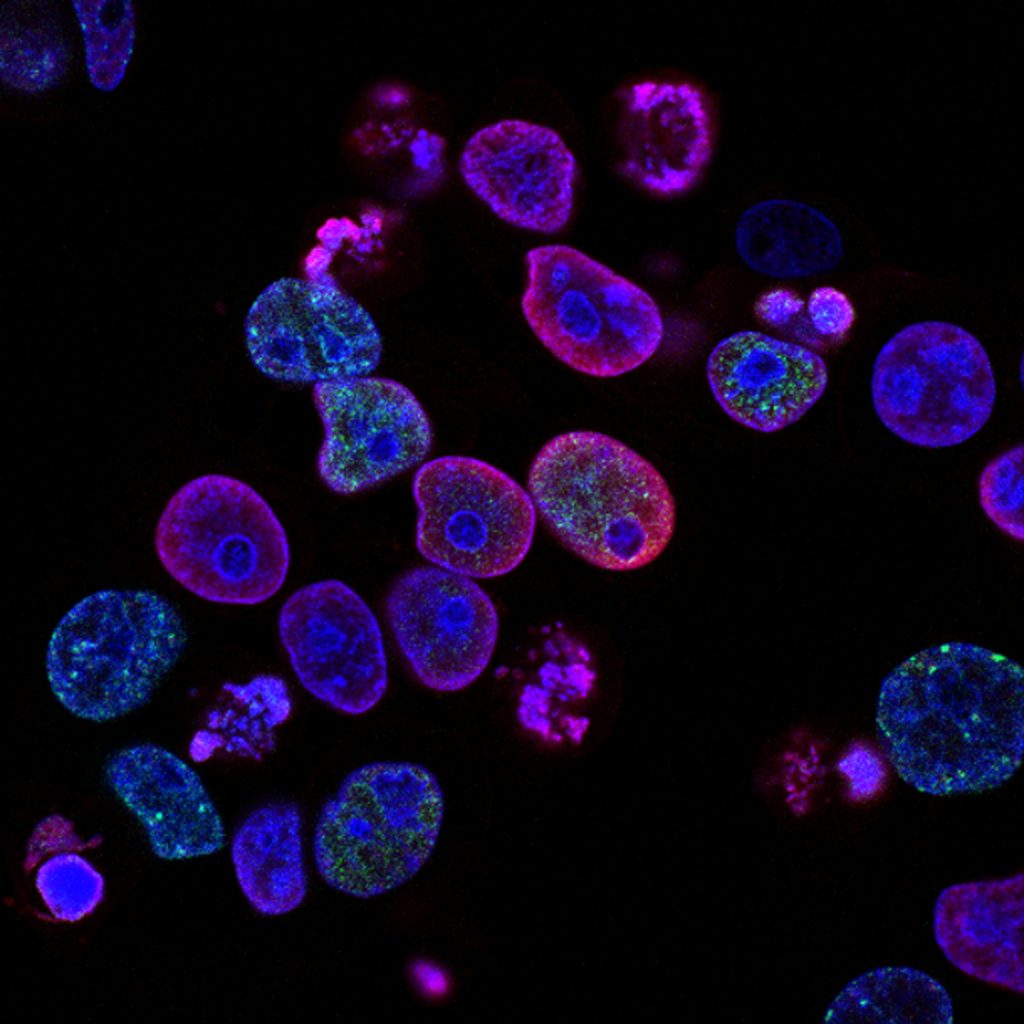Unexpected discovery about stem cell immortality
Independent groups of scientists investigating telomeres and stem cells have reported what lies behind the immortality of stem cells – what a leading Australian researcher calls “the most unexpected result of my career”.
Telomeres are the protective caps at chromosome ends. In adult cells, telomeres shorten each time a cell divides and this contributes to ageing and cancer. Pluripotent stem cells, however, are specialised cells that exist in the earliest days of development. These pluripotent cells do not age and have the ability to turn into any type of adult cell.
The surprise finding, published today in Nature, shows that telomeres in pluripotent stem cells are protected very differently than telomeres in adult tissues.
This has major implications for research on ageing, human development, regenerative medicine, and cancer. Previously, researchers expected fundamental mechanisms that protected DNA would be the same in all tissues. This now appears to be incorrect.
Associate Professor Tony Cesare highlighted that the discovery was important for understanding stem cells, which are increasingly being used to develop treatments (referred to as regenerative medicine) for many diseases.
“We now realise that the rules for creating telomere loops are entirely different in pluripotent stem cells, suggesting other cellular rules might also be different.
This is tremendously exciting for molecular biology and opens up a whole new way of thinking about immortality in stem cells, and invites new research into cancer, aging, embryonic and adult development, and regenerative medicine.”
Read more here.








